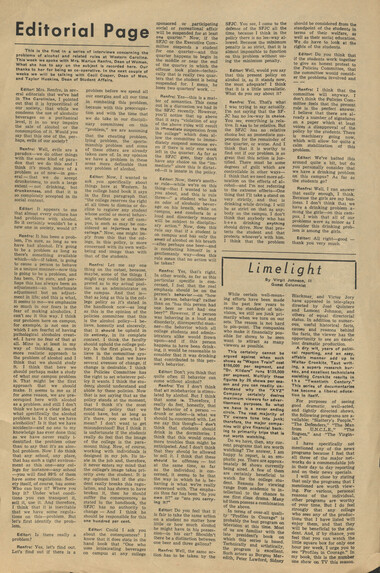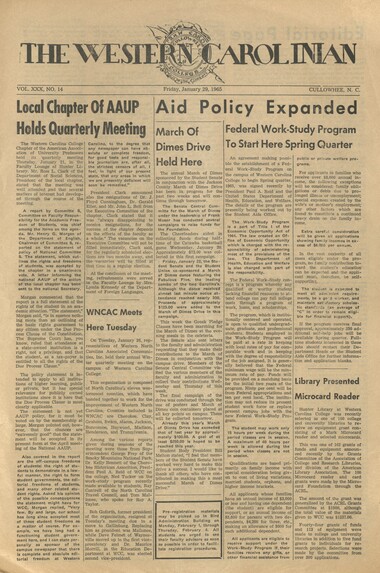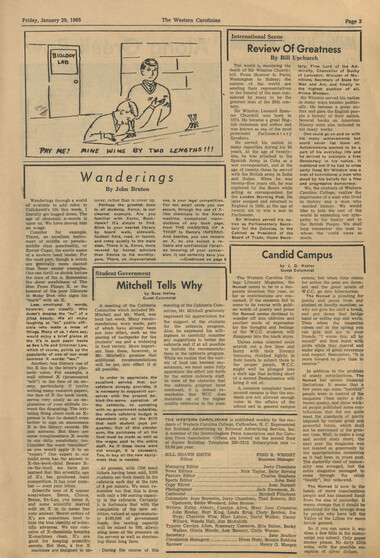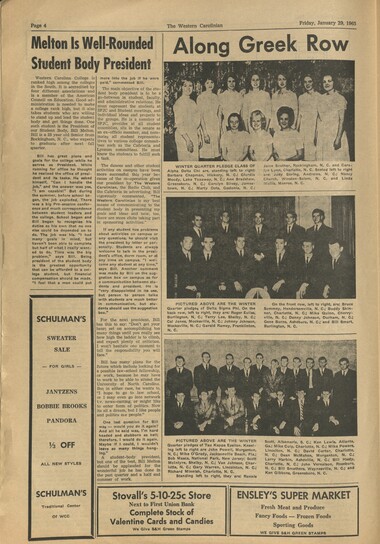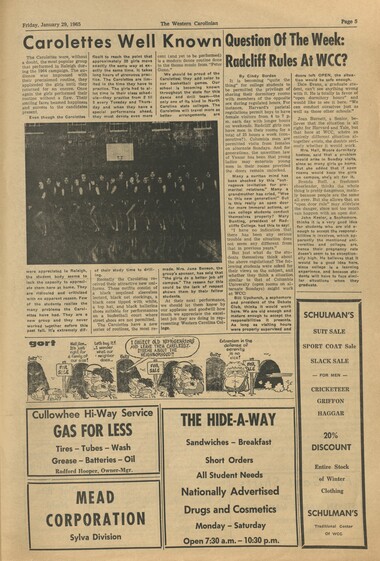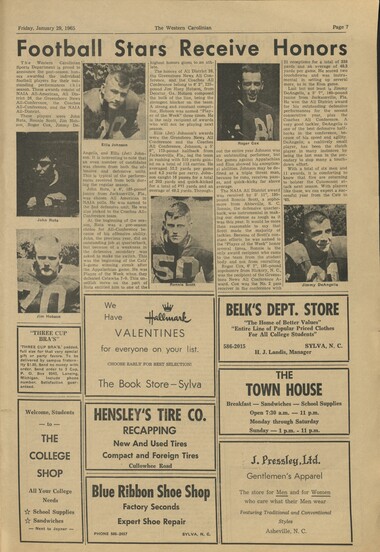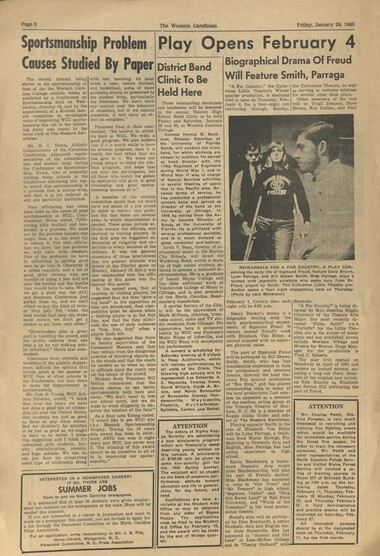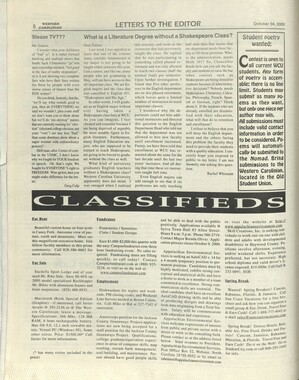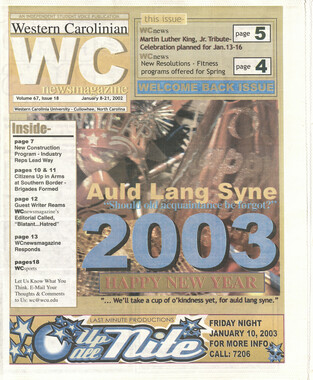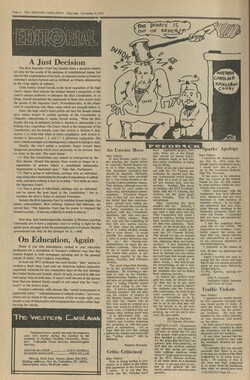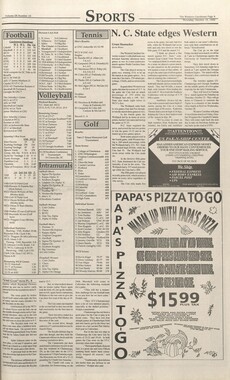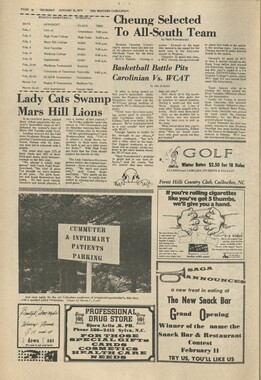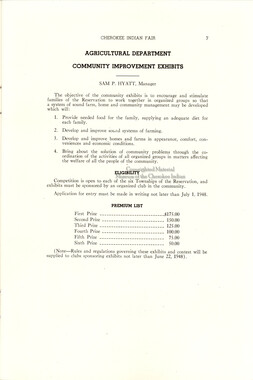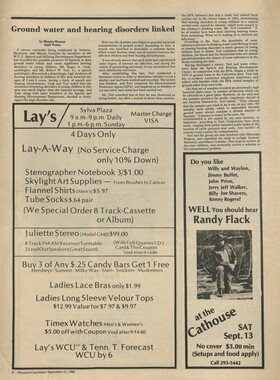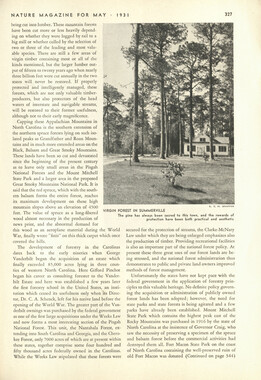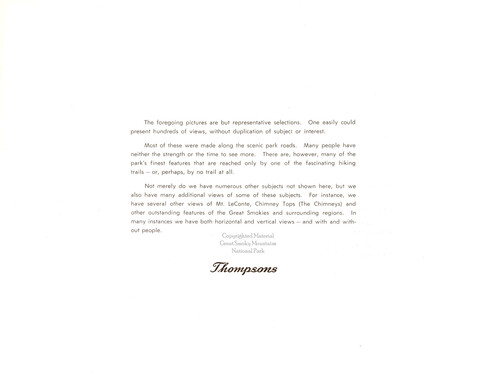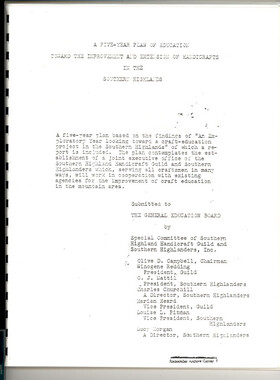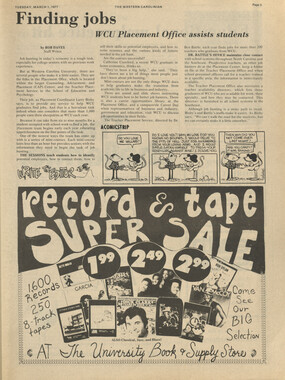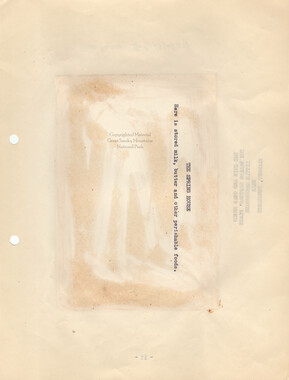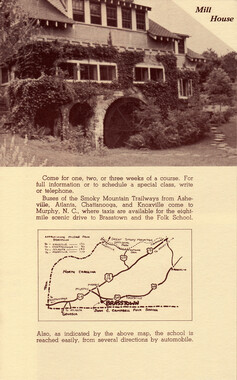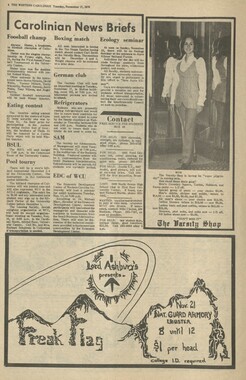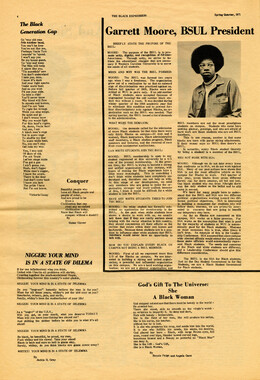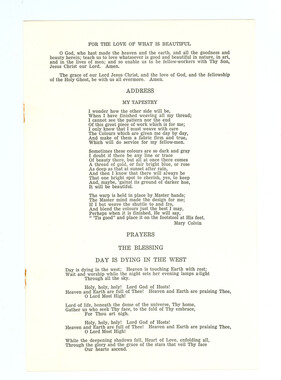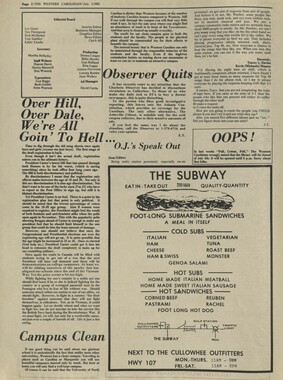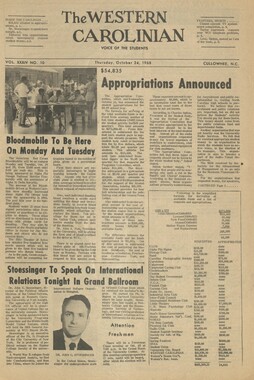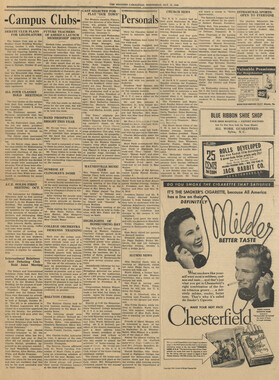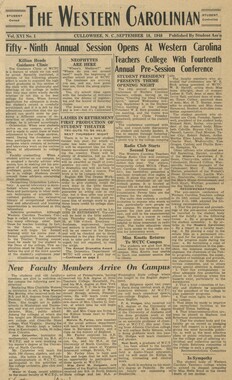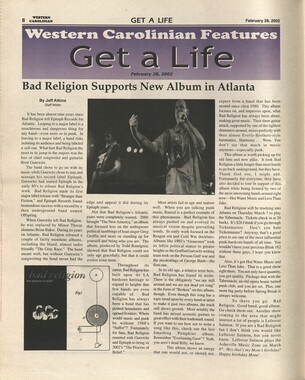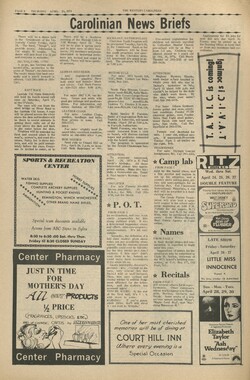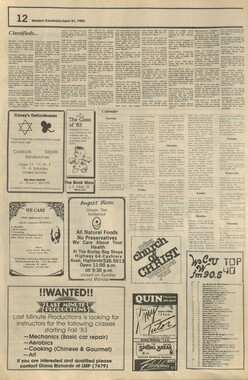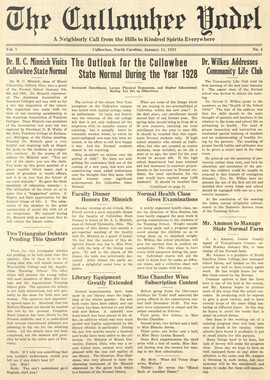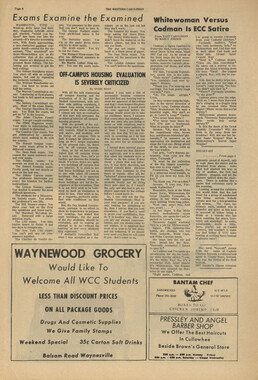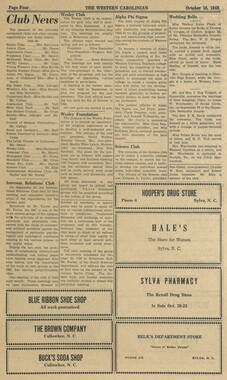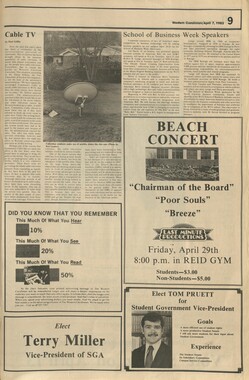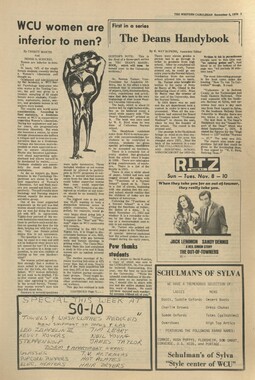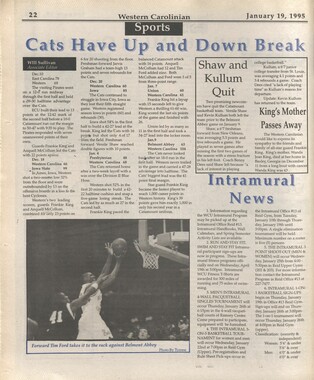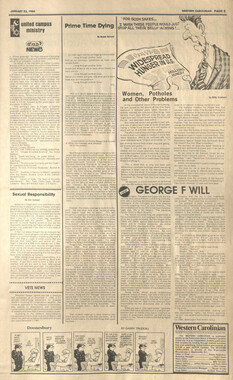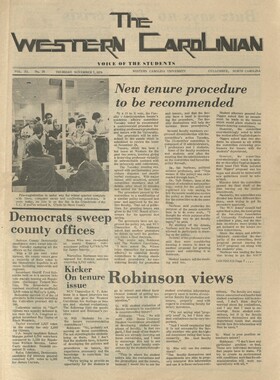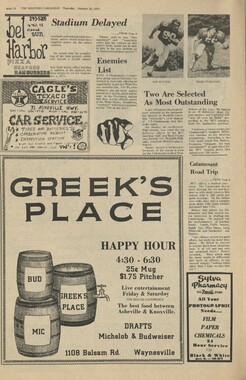Western Carolina University (20)
View all
- Canton Champion Fibre Company (2308)
- Cherokee Traditions (293)
- Civil War in Southern Appalachia (165)
- Craft Revival (1942)
- Great Smoky Mountains - A Park for America (2683)
- Highlights from Western Carolina University (430)
- Horace Kephart (941)
- Journeys Through Jackson (154)
- LGBTQIA+ Archive of Jackson County (15)
- Oral Histories of Western North Carolina (314)
- Picturing Appalachia (6679)
- Stories of Mountain Folk (413)
- Travel Western North Carolina (160)
- Western Carolina University Fine Art Museum Vitreograph Collection (129)
- Western Carolina University Herbarium (92)
- Western Carolina University: Making Memories (708)
- Western Carolina University Publications (2283)
- Western Carolina University Restricted Electronic Theses and Dissertations (146)
- Western North Carolina Regional Maps (71)
- World War II in Southern Appalachia (131)
University of North Carolina Asheville (6)
View all
- Allanstand Cottage Industries (62)
- Appalachian National Park Association (53)
- Bennett, Kelly, 1890-1974 (1295)
- Berry, Walter (76)
- Brasstown Carvers (40)
- Carver, George Washington, 1864?-1943 (26)
- Cathey, Joseph, 1803-1874 (1)
- Champion Fibre Company (233)
- Champion Paper and Fibre Company (297)
- Cherokee Indian Fair Association (16)
- Cherokee Language Program (22)
- Crowe, Amanda (40)
- Edmonston, Thomas Benton, 1842-1907 (7)
- Ensley, A. L. (Abraham Lincoln), 1865-1948 (275)
- Fromer, Irving Rhodes, 1913-1994 (70)
- George Butz (BFS 1907) (46)
- Goodrich, Frances Louisa (120)
- Grant, George Alexander, 1891-1964 (96)
- Heard, Marian Gladys (60)
- Kephart, Calvin, 1883-1969 (15)
- Kephart, Horace, 1862-1931 (313)
- Kephart, Laura, 1862-1954 (39)
- Laney, Gideon Thomas, 1889-1976 (439)
- Masa, George, 1881-1933 (61)
- McElhinney, William Julian, 1896-1953 (44)
- Niggli, Josephina, 1910-1983 (10)
- North Carolina Park Commission (105)
- Osborne, Kezia Stradley (9)
- Owens, Samuel Robert, 1918-1995 (11)
- Penland Weavers and Potters (36)
- Roberts, Vivienne (15)
- Roth, Albert, 1890-1974 (142)
- Schenck, Carl Alwin, 1868-1955 (1)
- Sherrill's Photography Studio (2565)
- Southern Highland Handicraft Guild (127)
- Southern Highlanders, Inc. (71)
- Stalcup, Jesse Bryson (46)
- Stearns, I. K. (213)
- Thompson, James Edward, 1880-1976 (226)
- United States. Indian Arts and Crafts Board (130)
- USFS (683)
- Vance, Zebulon Baird, 1830-1894 (1)
- Weaver, Zebulon, 1872-1948 (58)
- Western Carolina College (230)
- Western Carolina Teachers College (282)
- Western Carolina University (1794)
- Western Carolina University. Mountain Heritage Center (18)
- Whitman, Walt, 1819-1892 (10)
- Wilburn, Hiram Coleman, 1880-1967 (73)
- Williams, Isadora (3)
- Cain, Doreyl Ammons (0)
- Crittenden, Lorraine (0)
- Rhodes, Judy (0)
- Smith, Edward Clark (0)
- Appalachian Region, Southern (2393)
- Asheville (N.C.) (1886)
- Avery County (N.C.) (26)
- Blount County (Tenn.) (147)
- Buncombe County (N.C.) (1664)
- Cherokee County (N.C.) (283)
- Clay County (N.C.) (555)
- Graham County (N.C.) (233)
- Great Smoky Mountains National Park (N.C. and Tenn.) (478)
- Haywood County (N.C.) (3522)
- Henderson County (N.C.) (70)
- Jackson County (N.C.) (4692)
- Knox County (Tenn.) (21)
- Knoxville (Tenn.) (9)
- Lake Santeetlah (N.C.) (10)
- Macon County (N.C.) (420)
- Madison County (N.C.) (211)
- McDowell County (N.C.) (39)
- Mitchell County (N.C.) (132)
- Polk County (N.C.) (35)
- Qualla Boundary (981)
- Rutherford County (N.C.) (76)
- Swain County (N.C.) (2017)
- Transylvania County (N.C.) (247)
- Watauga County (N.C.) (12)
- Waynesville (N.C.) (68)
- Yancey County (N.C.) (72)
- Aerial Photographs (3)
- Aerial Views (60)
- Albums (books) (4)
- Articles (1)
- Artifacts (object Genre) (228)
- Biography (general Genre) (2)
- Cards (information Artifacts) (38)
- Clippings (information Artifacts) (191)
- Crafts (art Genres) (622)
- Depictions (visual Works) (21)
- Design Drawings (1)
- Drawings (visual Works) (184)
- Envelopes (73)
- Facsimiles (reproductions) (1)
- Fiction (general Genre) (4)
- Financial Records (12)
- Fliers (printed Matter) (67)
- Glass Plate Negatives (381)
- Guidebooks (2)
- Internegatives (10)
- Interviews (811)
- Land Surveys (102)
- Letters (correspondence) (1013)
- Manuscripts (documents) (619)
- Maps (documents) (159)
- Memorandums (25)
- Minutes (administrative Records) (59)
- Negatives (photographs) (5651)
- Newsletters (1285)
- Newspapers (2)
- Occupation Currency (1)
- Paintings (visual Works) (1)
- Pen And Ink Drawings (1)
- Periodicals (193)
- Personal Narratives (7)
- Photographs (12982)
- Plans (maps) (1)
- Poetry (5)
- Portraits (1655)
- Postcards (329)
- Programs (documents) (151)
- Publications (documents) (2237)
- Questionnaires (65)
- Scrapbooks (282)
- Sheet Music (1)
- Slides (photographs) (402)
- Sound Recordings (796)
- Specimens (92)
- Speeches (documents) (15)
- Tintypes (photographs) (8)
- Transcripts (322)
- Video Recordings (physical Artifacts) (23)
- Vitreographs (129)
- Text Messages (0)
- A.L. Ensley Collection (275)
- Appalachian Industrial School Records (7)
- Appalachian National Park Association Records (336)
- Axley-Meroney Collection (2)
- Bayard Wootten Photograph Collection (20)
- Bethel Rural Community Organization Collection (7)
- Blumer Collection (5)
- C.W. Slagle Collection (20)
- Canton Area Historical Museum (2110)
- Carlos C. Campbell Collection (198)
- Cataloochee History Project (65)
- Cherokee Studies Collection (4)
- Daisy Dame Photograph Album (5)
- Daniel Boone VI Collection (1)
- Doris Ulmann Photograph Collection (112)
- Elizabeth H. Lasley Collection (1)
- Elizabeth Woolworth Szold Fleharty Collection (4)
- Frank Fry Collection (95)
- George Masa Collection (173)
- Gideon Laney Collection (452)
- Hazel Scarborough Collection (2)
- Hiram C. Wilburn Papers (28)
- Historic Photographs Collection (236)
- Horace Kephart Collection (861)
- Humbard Collection (33)
- Hunter and Weaver Families Collection (1)
- I. D. Blumenthal Collection (4)
- Isadora Williams Collection (4)
- Jesse Bryson Stalcup Collection (47)
- Jim Thompson Collection (224)
- John B. Battle Collection (7)
- John C. Campbell Folk School Records (80)
- John Parris Collection (6)
- Judaculla Rock project (2)
- Kelly Bennett Collection (1314)
- Love Family Papers (11)
- Major Wiley Parris Civil War Letters (3)
- Map Collection (12)
- McFee-Misemer Civil War Letters (34)
- Mountain Heritage Center Collection (4)
- Norburn - Robertson - Thomson Families Collection (44)
- Pauline Hood Collection (7)
- Pre-Guild Collection (2)
- Qualla Arts and Crafts Mutual Collection (12)
- R.A. Romanes Collection (681)
- Rosser H. Taylor Collection (1)
- Samuel Robert Owens Collection (94)
- Sara Madison Collection (144)
- Sherrill Studio Photo Collection (2558)
- Smoky Mountains Hiking Club Collection (616)
- Stories of Mountain Folk - Radio Programs (374)
- The Reporter, Western Carolina University (510)
- Venoy and Elizabeth Reed Collection (16)
- WCU Gender and Sexuality Oral History Project (32)
- WCU Mountain Heritage Center Oral Histories (25)
- WCU Oral History Collection - Mountain People, Mountain Lives (71)
- WCU Students Newspapers Collection (1744)
- Western North Carolina Tomorrow Black Oral History Project (69)
- William Williams Stringfield Collection (2)
- Zebulon Weaver Collection (109)
- African Americans (388)
- Appalachian Trail (32)
- Artisans (521)
- Cherokee art (84)
- Cherokee artists -- North Carolina (10)
- Cherokee language (21)
- Cherokee pottery (101)
- Cherokee women (208)
- Church buildings (166)
- Civilian Conservation Corps (U.S.) (110)
- College student newspapers and periodicals (1830)
- Dams (94)
- Dance (1023)
- Education (222)
- Floods (60)
- Folk music (1015)
- Forced removal, 1813-1903 (2)
- Forest conservation (220)
- Forests and forestry (917)
- Gender nonconformity (4)
- Great Smoky Mountains National Park (N.C. and Tenn.) (154)
- Hunting (38)
- Landscape photography (10)
- Logging (103)
- Maps (84)
- Mines and mineral resources (8)
- North Carolina -- Maps (18)
- Paper industry (38)
- Postcards (255)
- Pottery (135)
- Railroad trains (69)
- Rural electrification -- North Carolina, Western (3)
- School integration -- Southern States (2)
- Segregation -- North Carolina, Western (5)
- Slavery (5)
- Sports (452)
- Storytelling (245)
- Waterfalls -- Great Smoky Mountains (N.C. and Tenn.) (66)
- Weaving -- Appalachian Region, Southern (280)
- Wood-carving -- Appalachian Region, Southern (328)
- World War, 1939-1945 (173)
Western Carolinian Volume 30 Number 14, January 29, 1965
Item
Item’s are ‘child’ level descriptions to ‘parent’ objects, (e.g. one page of a whole book).
-
-
Editorial Page This is the first in a series of interviews concerning the problems of alcohol and related rules at Western Carolina. This week we spoke with Mrs. Marion Renfro, Dean of Women. What she has to say on the subject is recorded here. Our thanks to her for being so co-operative. In the next couple of weeks we will be talking with Cecil Cosper, Dean of Men, and Taylor Huskins, Dean of Student Affairs. Editor: Mrs. Renfro, in several editorials that we've had in The Carolinian, I pointed out that it is hypocritical of our society, that while we condemn the use of alcoholic beverages on a puritanical level, it in no way impairs the sale of alcohol or the consumption of it. Would you say that this one of the, perhaps, evils of our society? Renfro: Well, evils are a paradox—we do other things with the same kind of paradox that we do this and I think it's much more of a problem as of now—in general — that we do accept drunkenness, to such a large extent — not drinking, but drunkenness, and that it is so completely accepted in its social content. Editor: It appears to me that almost every culture has had problems with alcohol. So it certainly wouldn't be a new one in society, would it? Renfro: It has been a problem, I'm sure, as long as we have had alcohol. It's going to be a problem as long as there's something available which—uh—if taken, is going to cause a person to behave in a unique manner—now this is going to- be a problem, and has been, I'm sure, and perhaps this has always been an adjustment—an unfortunate adjustment but an adjustment in life; and this is what, it seems to me—we emphasize so much in our fears is the fear of making alcoholics. I can't see it this way. I think our problem here on campus, for example, is not one in which I am fearful of having pathological alcoholcs created. I have no fear of that at all. Mine is, at least in my way of thinking, a much more realistic approach to the problem of alcohol and I think that we should study ft. I think that here we should perhaps make a study of what our campus problem is. That might be the first approach that we should make. It seems to me as if for some reason, we are preoccupied here with alcohol as a problem, and still I don't think we have a clear idea of what specifically the alcohol problem is. Is it that we have alcoholics? Is it that we have accidents—and no one to my knowledge has ever done this; so we have never really i- dentified the problem other than to say that it's an alcohol problem. Now I do think that any school, any place1 that has such a tight environment as this one—any college for instance—any school —you will find 99% of them have some regulations. Society itself, of course, has some: Who can buy it? Where you buy it? Under what conditions you can transport it, sell it, use it. And therefore, I think that it is inevitable that we have some regulations on this—problem. But let's first identify the problem. Editor: Is there really a problem? Renfro: Yes, let's find out. Let's find out if there is a problem before we spend all our energies and all our time in combating this problem, because with this preoccupation and with the time that we do take in our disciplinary committees on this "problem," we are assuming that the cheating problem, lying problem, the sportsmanship problem and some of these others are already taken care of. In my opinion we have a problem in these areas more definable than any problem of alcohol. Editor: Now, I wanted to ask you specifically about things here at Western. In the college hand book it says in the first paragraph that "the college reserves the right at all times to dismiss or decline to register any student whose social or moral behavior, whether on or off campus, is such as may be considered as injurious to the college." Now, one might imply from this that the college, in this policy, is more concerned with its own well- being and image than with that of the students. Renfro: Let me say one thing on the outset, because, maybe, some of the things I might say could be misinterpreted as to my actual position as an administrator on the campus. And that is— that as long as this is the college policy as it's stated in the handbook now—as long as this is the opinion of the policies committee that this is the alcohol policy—I believe, honestly and sincerely, that it should be upheld in its entirety, in its complete context. I think the faculty should uphold the college policy. In the first place, I believe in the committee system. I think that we have several avenues of change, if change is desirable. I think the Policies Committee has the right to set whatever policy it wants. I think the students should understand and abide by these policies. Now that is not saying that as the policy stands at the moment, that I think it's the most functional policy that we could have, but as long as it's there, you see what I mean? I don't want to get misunderstood! But I think it is unfortunate if the students really do feel that the image of the college is the paramount thing. Now, of course, working with individuals is designed in my job. Its in- ate in the job and, therefore, it never enters my mind that the college's image takes priority over the student. It is my opinion that if the student really breaks this regulation, and has shown to have broken it, then he should suffer the consequences as stated in the handbook, the SFJC has no authority to change — And I think he should be responsible for this one hundred per cent. Editor: Could I ask you about the consequences? I know that it does state in the hand book that "One who uses intoxicating beverages on campus at any college sponsored or participating social or recreational affair will be suspended for at least one quarter." Now, if the SFJC or the Executive Committee suspends a student for one quarter—and this quarter happens to begin in the middle or near the end of the quarter in which the offense took place—technically that is really two quarters that the student is being suspended for. I mean, he loses two quarters' work Renfro: Yes—this is a matter of semantics. This came out in a discussion we had in the SFJC recently. However, you'll notice that up above that it says "violation of any of the above rules will result in immediate suspension from the college" which does allow the committee to immediately suspend someone even if there is only one week left in the quarter. As far as the SFJC goes, they don't have any choice on the "immediate" since this is dictated—it is innate in the policy. Editor: Now, there's another rule—while we're on this thing—that I wanted to ask you about, and this is rule three—" a student who has an odor of alcoholic beverage on his breath, while on campus, and conducts in a loud and disorderly manner will be subject to disciplinary action." Now, does this rule say that if a student is on campus and has only the smell of alcohol on his breath —after perhaps one beer—and is conducting himself in a gentlemanly way—does this rule mean that no action will be taken? Renfro: Yes, that's right. In other words, as far as this particular specific is concerned, I feel that the real emphasis should be on the person's behavior—on "how is a person behaving? rather than on "has this person had one beer or not had one beer?" However, if a person was behaving in a loud and disorderly, disrespectful manner—the behavior which all college students and administrators alike would frown upon—and if this person happens to have been drinking, it would be reasonable to consider that it was drinking that contributed to this person's behavior. Editor: Don't you think that quite often ill behavior can come without alcohol? Renfro: Yes I don't think that all misbehavior is stimulated by alcohol. But I think that some is. Therefore, I really do feel, honestly, that the behavior of a person — drunk or sober—is what we should be concerned with. Let me say this though—I don't think that students should drink in the dormitories. I think that this would create more troubles than might be anticipated. And I don't think that they should be allowed to sell it. I think that these should be offenses — but at the same time, as far as the individual is concerned, it seems to be that the way in which he is behaving is what we're really concerned with. The emphasis thus far has been "do you own it?" or "are you carrying It?" Editor: Do you feel that it is fair to take the same action on a student no matter how little or how much alcohol he might have in his possession—in his car? Shouldn't there be a distinction between one beer and three gallons? Renfro: Well, the same action has to be taken by the SFJC. You see, I come to the defense of the SFJC all the time, because I think in the policy there is no lee-way allowed. Because the minimum penalty is so strict, that it is almost impossible to function on this problem without using the minimum penalty. Editor: Well, would you say that this present policy on alcohol is, as it stands now, the most adequate? I think that it is a little unrealistic. What do you say about it? Renfro: Yes. That's what I was trying to say actually. I'm not saying that the SFJC has no lee-way in choice. You see, everything is relative. It has to be relative. But the SFJC has no relative choice but an immediate suspension for the remainder of the quarter, or worse. And I think that it is worthy to find out if our problem is so great that this action is justified. There must be some degrees of guilt which are controllable in other ways— I think that we need more education on the effects of alcohol—and I'm not referring to the extreme effects—One thing that I'll take a stand on very strictly, and that is drinking while driving. I will be as strict on that as anybody on the campus. I don't think that anybody who has been drinking anything should drive. Now that protects the student and that protects whoever's with him. I think that the problem should be considered from the standpoint of the students in terms of their welfare, as well as their social education. We do have to look at the rights of the students. Editor: Do you think that if the students work together to give an honest protest to the Policies Committee, that the committee would consider the problems involved and Renfro: I think that the committee will anyway. I don't think the Policies Committee feels that the present rule is the perfect answer. I believe that there are already a number of signatures on a paper which at least voices a disapproval of the policy by the students. There is machinery going now, which will allow for quite a calm stabilization of this problem. Editor: We've batted this around quite a bit, but do you personally consider that we have a drinking problem on this campus? As far as the students go? Renfro: Well, I can answer that easily enough, I think. Because the girls are my business. I don't think that we have a drinking problem a- mong the girls—on this campus. I wish that all of our problems were as minor as I consider this drinking problem is among the girls. Editor: All right—good — thank you very much. Limelight By Virgil Johnson, II Guest Columnist While certain well-meaning efforts have been made in the past few years to raise the standards of television, we still see junk primarily when we turn on our sets. The reason is not hard to pin-point. The companies who make it financially possible for shows to be seen want to attract as many viewers as possible. This certainly cannot be argued against when such shows as "Wagon Train" cost $196,000 per segment, and "Dr. Kildare" runs $135,000 per segment. Multiply these figures by 26 shows per season and you can readily understand why the "XYZ" Company certainly desires maximum viewers for advertisement purposes. So what we have Is a never ending circle. The vast majority of TV owners tune Into Junk; therefore, the major companies will give financial backing to primarily tripe that is not worth watching. Do we have, then, any current programs that are worth watching? The answer, I am happy to report, is an emphatic yes. There are approximately 96 shows currently being aired. A few of them are certainly beneficial to watch for the college student. Reasons for viewing range from academic to intellectual to the chance to see first class drama. Many tof them possess a combination of the above. In terms of over-all quality "Profiles in Courage" is probably the best program on television at this time. Most of us are familiar with the late president's book on which this series is based. Technically and artistically, the program is excellent. Such actors as Burgess Meredith, Peter Lawford, Sidney Blackmer, and Victor Jory have appeared in tele-plays directed by Jose Quintere and Lamont Johnson, and others of equal directorial status. In addition to numerous, useful historical facts, causes and reasons behind the facts, the viewer has the opportunity to see an excellent dramatic production. A dry wit, years of political reporting, and an easy, affable manner add up to Walter Cronkite. Taut writing, a superb research bureau, and excellent technicians assisting Cronkite results in the "Twentieth Century." This series of documentaries has become a liberal education in itself. For purposes of seeing good dramatic, well-acted, and tightly directed shows, the following programs are a- vailable: "Slattery's People," "The Defenders," "The Man from U.N.C.L.E.," "The Rogues," and "The Virginian." I have specifically not mentioned any of the news programs because I feel that all three of the major networks do a commendable job in their day to day reporting and on their news specials. I will not close by stating that only the programs that I mentioned are worth viewing. For various, personal reasons of the individual, other programs are worthy of your time. But I do feel strongly that any college who sees any of the productions that I have listed will enjoy them, and that they will be beneficial to the student. And, if by chance, you feel that you can watch the little square box for only one hour per week, I urge you to see "Profiles in Courage." In my book, this is the number one show on TV this season.
Object
Object’s are ‘parent’ level descriptions to ‘children’ items, (e.g. a book with pages).
-
The Western Carolinian is Western Carolina University’s student-run newspaper. The paper was published as the Cullowhee Yodel from 1924 to 1931 before changing its name to The Western Carolinian in 1933.
-
